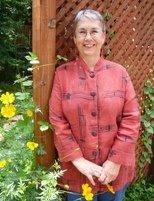
The Fifty-Word Book Review
Special Post
for Michigan State University
Professor Anita Skeen’s Creative Workshop (RCAH 291): Writing Miniatures.
(but you non-student readers are welcome, too)
Below you will find a sampling of 50-Word Book Reviews originally posted for fun on my Facebook. I wanted to generate more book talk among my bookie friends. But I think the original impulse arose when I realized my Book List notebook was inadequate. For years I’ve kept track of books I’ve read, noting the date, biblio-info, and a few words of response, plus a five star rating. In 2007 I read Winter’s Bone and gave it a full five. I loved that book. I wished I had written a bit more than…yeah for the strong female protagonist. Now that the movie is out, I’m going to reread it and write a decent review…but in only fifty words.
The fifty words is purely arbitrary but I’ve found it makes the task more interesting and, like poetry, makes every word do some work. And, since I was posting these into Facebook Notes, I respected the fact that Friends wanted to read quick and move on. A possible add-on feature outside the fifty word limit was sometimes a list of words I didn’t know (WIDK) and a favorite quote. Perhaps this is just a way to use my reading notes, but pulling pertinent language out of the text provides a little teaser.
As you will see, my approach is to write in a familiar voice as though talking to a friend. I usually had a hundred words in a first draft and began whittling down from there, looking for more judicious ways to express the thought. I also tried to capture something of the tone of the book into the review. How to do this, I’m not sure. Upon finishing a book, I have the author’s voice in my head and I always wrote immediately after reading while I was still surrounded by the world of that book.
I hope you enjoy this assignment. I find it a good practice for a reader/writer, keeping the reader a writer and the writer always in conversation with other readers. I look forward to reading your fifty words, and if you and Professor Skeen agree, I would love to post your reviews here on my blog.
Sample of my 50-Word Book Reviews
1.
Too Long a Solitude: poems by James Ragan (University of Oklahoma Press)
First, you want to hold it: the cover a pearly sky above icy ocean; book bound the size of a fat sympathy card. It does in thirty-five neo-Wordsworthian poems what such a greeting ought to do: help you see the world so close you want to live and trust again.
WIDK(words I didn’t know) merle, supernal, heliopause, whimbrels, kittiwakes
QUOTE If for each of us a rope/could swing us/ long and light across a widening trough /I would want to land upon the Isle of Echo/
2. The Selected Works of T.S. Spivet/A novel by Reif Larsen (Penguin, 2009)
If you’re one who tends to quit a novel early, read to about page 275. You’ll have enjoyed T.S. (Tecumseh Sparrow)’s post-traumatic fascinating lists, graphs, numerations, but you won’t have to wonder why the author let some adolescent child (?) finish the heretofore beautifully wrought backwards-train-ride of a story. Mr. Larsen, please!
3.
Cutting for Stone: a novel by Abraham Verghese (Knopf, 2009)
Marion/Shiva, conjoined twins severed at birth, are little gods at the center of this Ethiopian saga. Love and doctoring in a mission hospital: no chapter anemic, characters fully fleshed, politically sobering, spiritually and sexually lavish. So many ways to go under the knife. Instructive. Terrifying. Beautiful to the last page.
WIDK: Tizita, injura, kitfo, krar, fistula (I’d head of but didn’t fully understand)
QUOTE: We are all fixing what is broken. It is the work of a lifetime.
4. Gate at the Stairs: a novel by Lorrie Moore. (Knopf, 2009)
Always a wizard of wit, Moore’s jokey pen runs amok. Her farm-girl freshman spouts academic acerbity while looking for a focus: marriage/birth, class/race, terrorism. Dark . Funny. Billed coming-of-age, I think not: someone’s too self-satisfied. And after so much death, she ends too easily with an adolescent quip, dear reader.
5. ZOOM/ a wordless picture book illustrated by the artist Istvan Banyai (Picture Puffin, 1998)
Cataloged “visual perception -fiction,” zoom is pencil-dynamically psycho-cosmically true. Who doesn’t want to zoom, divine the world? First, a red landscape turns into the comb of a barnyard cock, then zooms out to two children who, like us, think they know place and distance. Each page asks, is this it?
6. FACE: Poetry by Sherman Alexie (Hanging Loose Press, 2009)
Face: courageously confront; a look we’re born with.
Born encephalitic, exaggerated, imbalanced (big eye, small eye), Alexie takes given forms, mashes them with rez/runaway Indian speak. In Vilify, (villanelle defining Native American poetry as funny grief) he considers history’s lyric and footnote, refusing carved stone. Face! a declaration of victory.

